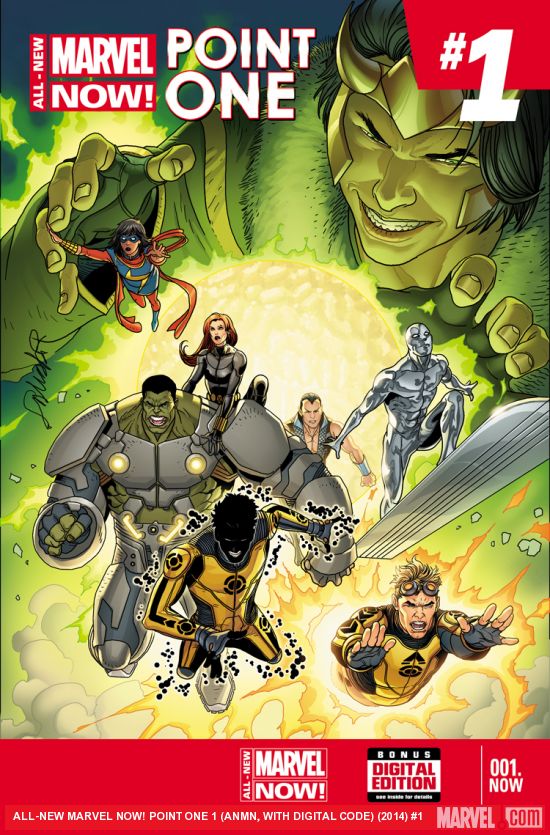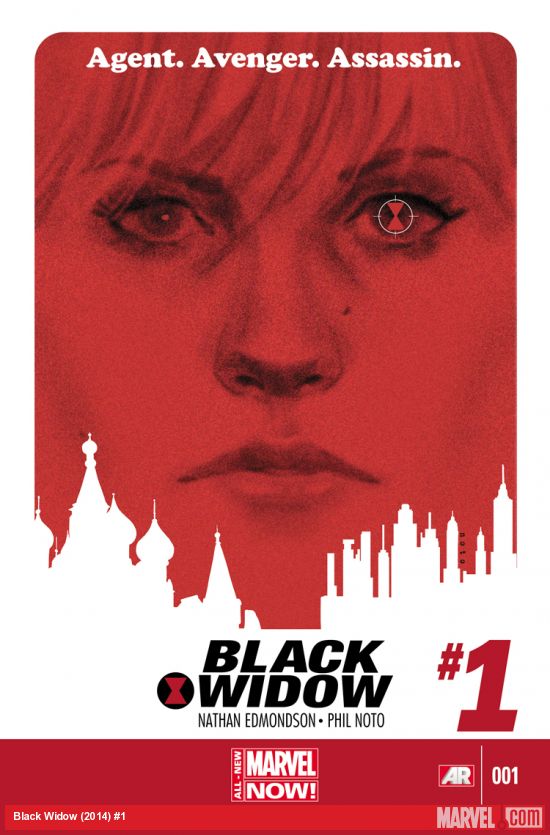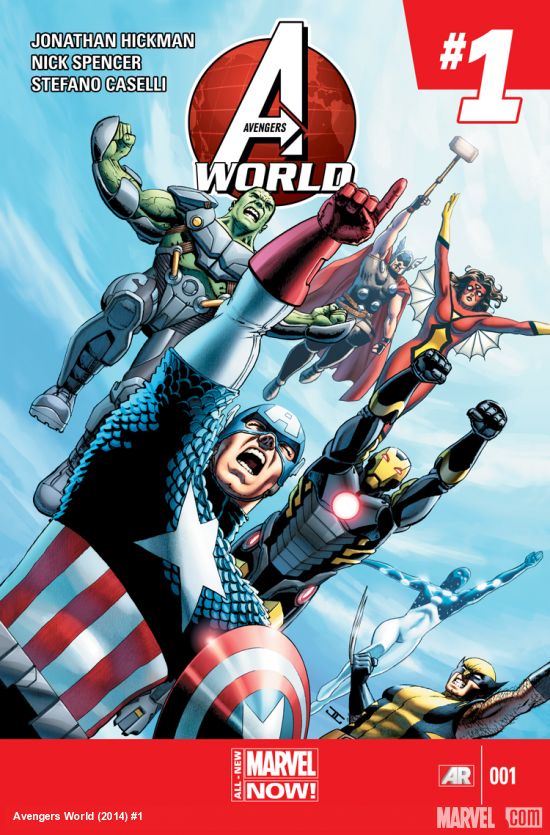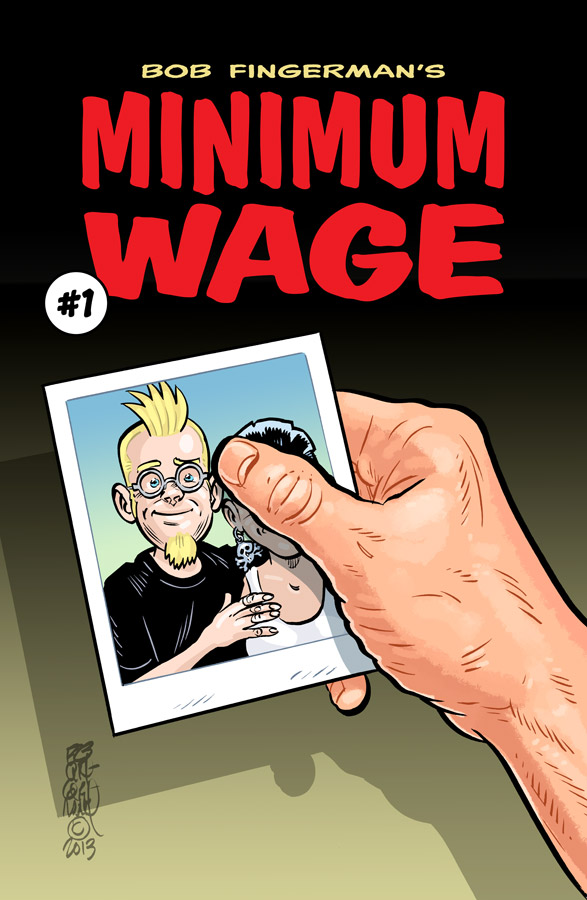We’re No. 1! is a weekly feature looking at first issues in new comic series, as well as one-offs and special releases. In his reviews, Jeff highlights stories with diverse characters and plot lines Geekquality readers can care about, as well as points out comics that miss the mark.
 It’s unusual for one company to dominate new releases in any given week, but that’s just what happened, as Marvel kicked its Marvel NOW! campaign into high gear with no fewer than four new series, a handful of new story arcs branded as #1’s and two preview issues of things to come. It was one of these preview books, All New Marvel NOW! Point One #1 ( seriously confusing title) that sparked the most interest, as it includes an 8-page mini-story featuring Kamala Khan, the new Ms. Marvel. Her much anticipated full series debut is due in April, but this preview already shows a sixteen year old girl struggling with overbearing parents and the difficulties of a secret identity. Kamala has serious family obligations and a domineering mother making sure she doesn’t forget them, but she’s also New Jersey’s self appointed protector and she’s having a tough time wrangling both. This initial view humanizes the young woman a great deal, and it’s a style that’s become Marvel’s calling card of late, looking at their heroes as complex people with everyday problems, as well as cosmic ones. Hopefully her book will follow in the same vein.
It’s unusual for one company to dominate new releases in any given week, but that’s just what happened, as Marvel kicked its Marvel NOW! campaign into high gear with no fewer than four new series, a handful of new story arcs branded as #1’s and two preview issues of things to come. It was one of these preview books, All New Marvel NOW! Point One #1 ( seriously confusing title) that sparked the most interest, as it includes an 8-page mini-story featuring Kamala Khan, the new Ms. Marvel. Her much anticipated full series debut is due in April, but this preview already shows a sixteen year old girl struggling with overbearing parents and the difficulties of a secret identity. Kamala has serious family obligations and a domineering mother making sure she doesn’t forget them, but she’s also New Jersey’s self appointed protector and she’s having a tough time wrangling both. This initial view humanizes the young woman a great deal, and it’s a style that’s become Marvel’s calling card of late, looking at their heroes as complex people with everyday problems, as well as cosmic ones. Hopefully her book will follow in the same vein.
 This new Marvel approach seems to be at the core of another female fronted book this week, Black Widow #1 from Nathan Edmondson, with fantastic washed out art by Phil Noto. Natasha Romanoff has been a spy, an assassin, and an Avenger to boot, and now she’s trying to atone for the sins of her past. She’s taken up the mercenary game once again, but this time with a conscience, of sorts. Natasha takes on assassinations and kidnappings, but not in the ways you might expect. Now she’s saving the targets and arresting the kidnappers, all for cold hard cash that she diverts to “trust funds” to help the disenfranchised. Sadly, we see so little of these endeavors, and so much of the violent action that Black Widow is known for, that it’s tough to believe Natasha is really coping with her past as well as she thinks. The attempt to humanize her falls short, with overused tropes that have been played with greater warmth in other books. Her refusal to adopt the local stray cat on her rooftop, to whom she narrates the entire book in confessional style, is something we’ve seen before (and better, with Pizza Dog especially), and her steadfast refusal to reveal who she “really is” seems antithetical to the message of redemption. It’s nice to see a book fronted by a female lead, and it adds fuel against the argument that such stories can’t be done. But, despite the fact that it’s the best looking book this week (the art, again, is amazing), we’d hoped for a stronger narrative voice here, and just didn’t get it.
This new Marvel approach seems to be at the core of another female fronted book this week, Black Widow #1 from Nathan Edmondson, with fantastic washed out art by Phil Noto. Natasha Romanoff has been a spy, an assassin, and an Avenger to boot, and now she’s trying to atone for the sins of her past. She’s taken up the mercenary game once again, but this time with a conscience, of sorts. Natasha takes on assassinations and kidnappings, but not in the ways you might expect. Now she’s saving the targets and arresting the kidnappers, all for cold hard cash that she diverts to “trust funds” to help the disenfranchised. Sadly, we see so little of these endeavors, and so much of the violent action that Black Widow is known for, that it’s tough to believe Natasha is really coping with her past as well as she thinks. The attempt to humanize her falls short, with overused tropes that have been played with greater warmth in other books. Her refusal to adopt the local stray cat on her rooftop, to whom she narrates the entire book in confessional style, is something we’ve seen before (and better, with Pizza Dog especially), and her steadfast refusal to reveal who she “really is” seems antithetical to the message of redemption. It’s nice to see a book fronted by a female lead, and it adds fuel against the argument that such stories can’t be done. But, despite the fact that it’s the best looking book this week (the art, again, is amazing), we’d hoped for a stronger narrative voice here, and just didn’t get it.
 Long time Marvel writer Peter David brings back one of his best creations with All New X-Factor #1. For his third volume of the X-Men spin-off series, David has created a corporate sponsored team headed by Polaris (the daughter of Magneto), her half brother Quicksilver, and Gambit, with new members to come. The team is completely sponsored by the Serval Industries, a megacorp that seems to be an analog of Google, but with its own weapons manufacturing division. Such companies are often cast as the villains in the comics world, but Serval claims to want to help people, and Polaris is a believer, slowly bringing the others along. Whether the company truly turns out to be altruistic is certainly part of the mystery, and it’s an interesting way of exploring the relationship between modern society and the giant corporations that now pull the strings in a more globally connected world. It’s also nice to see super teams headed by women, though a little racial diversity wouldn’t be out of order here, as once again the supers, much like their wealthy corporate bosses, are all white.
Long time Marvel writer Peter David brings back one of his best creations with All New X-Factor #1. For his third volume of the X-Men spin-off series, David has created a corporate sponsored team headed by Polaris (the daughter of Magneto), her half brother Quicksilver, and Gambit, with new members to come. The team is completely sponsored by the Serval Industries, a megacorp that seems to be an analog of Google, but with its own weapons manufacturing division. Such companies are often cast as the villains in the comics world, but Serval claims to want to help people, and Polaris is a believer, slowly bringing the others along. Whether the company truly turns out to be altruistic is certainly part of the mystery, and it’s an interesting way of exploring the relationship between modern society and the giant corporations that now pull the strings in a more globally connected world. It’s also nice to see super teams headed by women, though a little racial diversity wouldn’t be out of order here, as once again the supers, much like their wealthy corporate bosses, are all white.
 The Avengers also take a look at the larger world in their newest book (just one of almost a dozen these days), Avengers World #1. The Avengers have more autonomy from S.H.I.E.L.D. in the comics world than we see in the Marvel Cinematic Universe, but new S.H.I.E.L.D. Director Maria Hill is looking to bring the two groups closer together. To that end, she’s sent teams of Avengers all over the globe to deal with super heroic versions of some all too realistic global problems. Sure, the incredible super-storms that are plaguing the East Coast of the United States are caused by a cosmic threat and not just climate change. And yeah, public rioting in the Far East is due more to a nation being built literally on the back of a dragon than on drastic income disparity and inequality. But the Avengers books aren’t often about much more than folks in flashy costumes solving their problems by punching. At least, in this case, writer Jonathan Hickman is giving us a metaphorical look at some of the real world’s problems, which is more than most Avengers titles have done in the past. If this general concern for the fate of regular people continues, it will make a nice change in tone for the franchise.
The Avengers also take a look at the larger world in their newest book (just one of almost a dozen these days), Avengers World #1. The Avengers have more autonomy from S.H.I.E.L.D. in the comics world than we see in the Marvel Cinematic Universe, but new S.H.I.E.L.D. Director Maria Hill is looking to bring the two groups closer together. To that end, she’s sent teams of Avengers all over the globe to deal with super heroic versions of some all too realistic global problems. Sure, the incredible super-storms that are plaguing the East Coast of the United States are caused by a cosmic threat and not just climate change. And yeah, public rioting in the Far East is due more to a nation being built literally on the back of a dragon than on drastic income disparity and inequality. But the Avengers books aren’t often about much more than folks in flashy costumes solving their problems by punching. At least, in this case, writer Jonathan Hickman is giving us a metaphorical look at some of the real world’s problems, which is more than most Avengers titles have done in the past. If this general concern for the fate of regular people continues, it will make a nice change in tone for the franchise.
 Lastly, Marvel Worldwide Inc. (which is identified as a subsidiary of Marvel Entertainment) brings the one-shot Revolutionary War: Alpha. This book is a reboot and rebrand of what was once known as Marvel UK, and features just about every British Marvel superhero ever. Highlighting the mutant heroes Captain Britain and Peter Wisdom, the story manages to reunite several largely unknown British heroes from the last days of the Marvel UK imprint run in the mid-1990’s. I have to admit, the story was so confusing it had me running to Wikipedia to look up some of these older characters, but one thing was apparent as I was reading it: with all the possibilities that could play out when discussing the superheroes of what was once a global empire, the heroes here are again almost exclusively white. While there’s an unknown Black male on the cover, and Nick Fury makes a brief appearance in the book, there isn’t a single non-white character in the story who has a speaking part in the entire book. For an obvious attempt to write British comics, it was deeply disappointing not to see more ethnic diversity.
Lastly, Marvel Worldwide Inc. (which is identified as a subsidiary of Marvel Entertainment) brings the one-shot Revolutionary War: Alpha. This book is a reboot and rebrand of what was once known as Marvel UK, and features just about every British Marvel superhero ever. Highlighting the mutant heroes Captain Britain and Peter Wisdom, the story manages to reunite several largely unknown British heroes from the last days of the Marvel UK imprint run in the mid-1990’s. I have to admit, the story was so confusing it had me running to Wikipedia to look up some of these older characters, but one thing was apparent as I was reading it: with all the possibilities that could play out when discussing the superheroes of what was once a global empire, the heroes here are again almost exclusively white. While there’s an unknown Black male on the cover, and Nick Fury makes a brief appearance in the book, there isn’t a single non-white character in the story who has a speaking part in the entire book. For an obvious attempt to write British comics, it was deeply disappointing not to see more ethnic diversity.
 Finally, Image comics breaks the pattern this week with the return of Bob Fingerman’s Minimum Wage #1. The series resumes three years after the events of the previously highly introspective and personal book, and we find main character Rob still languishing in his career as a pornographic cartoonist. He’s divorced from his wife Sylvia and spends much of the book bemoaning his lot in life. At 25 he’s again single, living at home, and hanging out with his loutish friends. Indeed, he has all the problems of … a 25 year old white man, which aren’t really all that big of a deal, ultimately. The poor guy can still get into bars without his ID, so his life isn’t really that seriously broken, is it? The book’s overly serious look at the troubles of someone who isn’t nearly as bad off as a great many other people in the world makes it difficult to take very seriously. Rob’s biggest problems include the Internet in the early 00’s wiping out print pornography (and thus his livelihood) and the difficulties of Internet dating. I was roughly Rob’s age in the early 2000s, and I remember thinking that while my life wasn’t perfect, I still had it pretty good. Rob ultimately comes off as a sniveling sadsack, even as his life seems to be getting a little better, and while it’s nice to see serious real life stories in comics sometimes, this just isn’t a story of much interest or value.
Finally, Image comics breaks the pattern this week with the return of Bob Fingerman’s Minimum Wage #1. The series resumes three years after the events of the previously highly introspective and personal book, and we find main character Rob still languishing in his career as a pornographic cartoonist. He’s divorced from his wife Sylvia and spends much of the book bemoaning his lot in life. At 25 he’s again single, living at home, and hanging out with his loutish friends. Indeed, he has all the problems of … a 25 year old white man, which aren’t really all that big of a deal, ultimately. The poor guy can still get into bars without his ID, so his life isn’t really that seriously broken, is it? The book’s overly serious look at the troubles of someone who isn’t nearly as bad off as a great many other people in the world makes it difficult to take very seriously. Rob’s biggest problems include the Internet in the early 00’s wiping out print pornography (and thus his livelihood) and the difficulties of Internet dating. I was roughly Rob’s age in the early 2000s, and I remember thinking that while my life wasn’t perfect, I still had it pretty good. Rob ultimately comes off as a sniveling sadsack, even as his life seems to be getting a little better, and while it’s nice to see serious real life stories in comics sometimes, this just isn’t a story of much interest or value.

